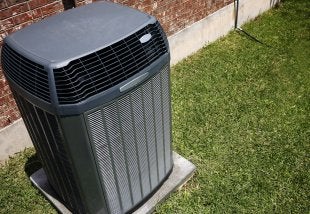It is not unheard of for heating, ventilation, and air conditioning (HVAC) systems to have a lifespan of anywhere between 15 to 25 years, depending on how well maintained they have been. HVAC units are some of the most overworked things in a home—furnaces tirelessly keep houses warm during cold winters while air conditioners cool indoor air in the hot summer months. But even after years of faithful service, your air conditioner will inevitably show signs of slowing down. When you find yourself in a situation where you are beyond AC repair, contact a professional who provides air conditioning service near Murfreesboro to have your system replaced. Here are some clues that you may need a new air conditioner.
 You Start to Hear Odd Noises
You Start to Hear Odd Noises
One telling sign that you may need a new AC unit is if you hear strange noises when you turn your AC on. Unusual whirring or sputtering sounds can indicate that a fan motor is malfunctioning. Oftentimes, if filter media or outdoor condensers are not properly replaced or cleaned, respectively, fan motors can have a hard time circulating air throughout the home because their intake vents are clogged. This situation requires fans to work harder than they should work, wearing them out prematurely. Rattling sounds coming from ductwork should also be cause for alarm.
You Smell a Strange Odor When the Unit Is On
You should always trust your senses. Fan motors that are burning out are usually to blame for abnormal odors. Sometimes, AC units may smell like they are releasing exhaust fumes, which can signal fluid leakages or something more ominous. Either way, you should call an HVAC specialist immediately to have your system assessed.
Your Air Conditioner Stops Working
The most obvious sign that you may need a new air conditioner is if your existing unit does not work at all when you turn it on. Oftentimes, the problem may stem from something that can be fixable. However, you should always be prepared to replace your system if necessary. The determining factor is if the cost of repairing your unit exceeds the cost of replacing it with a new unit.

